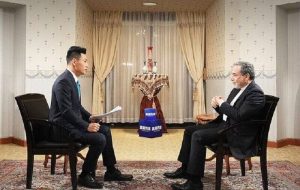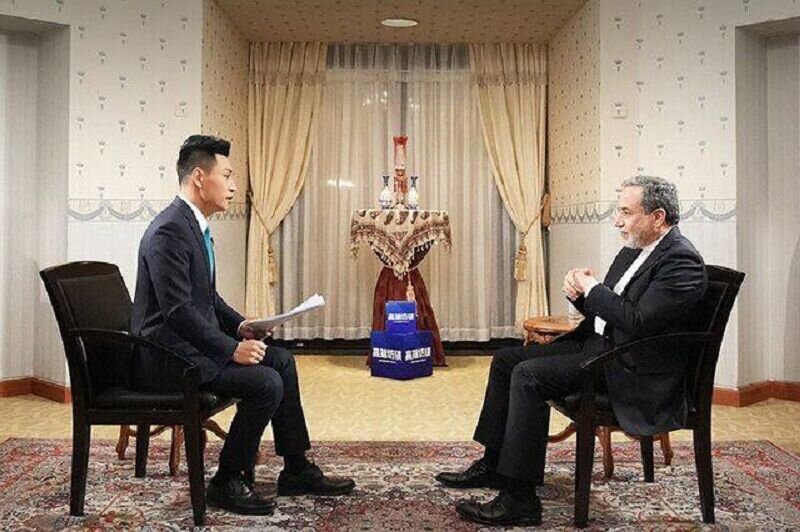Iran says ready to enter talks soon to agree on a new nuclear deal
TEHRAN – Iranian Foreign Minister Abbas Araghchi has said the Islamic Republic is ready to resume constructive and immediate talks on its nuclear program with the Western sides. “We are still ready to enter constructive dialogue without any delay about our nuclear program, a dialogue with the aim of reaching an agreement,” Araghchi told China’s


TEHRAN – Iranian Foreign Minister Abbas Araghchi has said the Islamic Republic is ready to resume constructive and immediate talks on its nuclear program with the Western sides.
“We are still ready to enter constructive dialogue without any delay about our nuclear program, a dialogue with the aim of reaching an agreement,” Araghchi told China’s CCTV in an interview aired on Saturday.
President-elect Donald Trump quit the multilateral nuclear deal with Iran in his first term in May 2018 and returned all the previous sanctions that had been lifted under the agreement and added new ones.
the chief diplomat said, “The U.S. pullout from the JCPOA was a grave strategic mistake that faced Iran’s reaction. Of course, the U.S. sanctions also increased.”
According to the deal, formally known as the Joint Comprehensive Plan of Action (JCPOA), Iran agreed to put a cap on its nuclear work in return for the termination of financial and economic sanctions.
The JCPOA was clinched in 2015 between Iran and the 5+1 group, the five permanent members of the UN Security Council plus Germany, after nearly two years of intensive negotiations.
“We negotiated for more than two years with the 5+1 countries in goodwill and finally we succeeded in reaching an agreement that was praised and accepted by the entire world as a diplomatic achievement,” explained Araghchi, who acted as Iran’s second-ranking diplomat in the talks at the time.
“We implemented it with goodwill but it was the U.S. that decided to withdraw from it without any reason and justification and brought the situation to this point.”
After the U.S. withdrawal, Iran remained fully committed to the JCPOA for a full year. Finally, in May 2019, after the European sides failed to honor their commitments, Iran started to gradually lift limits on its nuclear activities. At the time Iran announced if the European parties would abide by the agreement it would reverse its decision. However, the Europeans failed to do so.
The chief diplomat added the formula that Iran has in mind for resolving the nuclear issue is the same as the JCPOA, which means creating trust in Iran’s nuclear program in return for the lifting of sanctions.
“Based on this (formula) we are ready for talks.”
To revitalize the nuclear deal Iran held a brainstorming session in late November 2024 with the three European countries of Britain, France and Germany (E3) that are still party to the dormant nuclear agreement at the level of deputy foreign ministers in Geneva. Iran and the E3 plan to meet again on January 13.
On the policy of the new American administration toward the nuclear talks, the foreign minister said, “It is natural that the new administration should formulate its policies, and we decide based on that.”
Trump will officially take over as president on January 20.
Foreign Minister Araghchi went on to say that “China and Russia were two important influential parties in the negotiations (that produced the JCPOA) and Iran believes that the two countries should still play their own constructive role in the talks and this is our will and request.”
He added since 2015 when the nuclear deal was signed the world has undergone many changes.
The JCPOA expires in October 2025.
In response to the complicated situation in the region and issues surrounding Iran’s nuclear program, Araghchi replied, “The road to a diplomatic solution is never closed”.
“As a diplomat I believe it is possible to reach ‘diplomatic solutions’ in the most difficult situations, but it depends how much there is political will and how much diplomats show creativity and devise initiatives to find new ways and agree on new formulas. Finding a solution is difficult, but is not impossible if the other side has the diplomatic will.”
